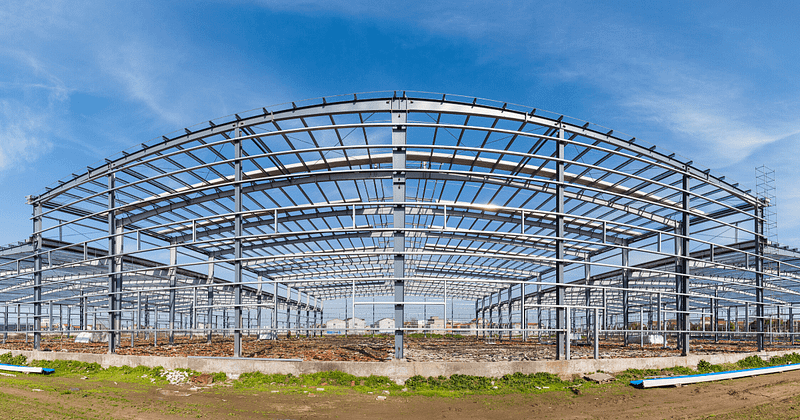
The United Arab Emirates (UAE), a region known for its dynamic economy, has long been shaped by the foundational strength of family-owned businesses. These businesses represent a vital part of the nation’s private sector, often spanning multiple generations and forming the backbone of the UAE’s commercial fabric. However, as the UAE positions itself for a future defined by global competition, digital transformation, and evolving regulatory landscapes, family-owned enterprises are finding themselves at a crossroads — balancing the reverence of tradition with the demands of innovation.
For decades, family businesses in the UAE have operated with values rooted in legacy, honor, and continuity. They are not merely commercial entities; they are emblematic of family identity and heritage. Yet, the rise of globalization, generational transitions, and government-led economic diversification efforts are prompting a wave of business restructuring. This shift is not a simple departure from tradition but rather an evolution — a strategic reconfiguration that aligns legacy-driven enterprises with future opportunities.
The Landscape of UAE Family Businesses
Family businesses in the UAE are estimated to contribute over 60% to the GDP and employ a significant portion of the private sector workforce. From conglomerates in retail, construction, and hospitality to niche players in healthcare and education, these enterprises are deeply embedded in the socio-economic framework of the Emirates.
Historically, these businesses have been managed by a patriarchal structure, with leadership passed down through generations, often without formal succession planning. Decision-making has traditionally remained centralized, with limited integration of external leadership or technological tools. But this model, though successful in the past, is now being challenged by the demands of modern business ecosystems.
The recent emphasis on corporate governance, international best practices, and economic sustainability by the UAE government, especially under Vision 2030 and the 50-Year Charter, is pushing family businesses toward operational and strategic transformation. One notable trend in this evolution is the structured business restructuring process — a deliberate effort to separate ownership from management, improve transparency, and integrate external expertise to drive growth.
Generational Transition: A Catalyst for Change
The generational shift in UAE family businesses is perhaps the most potent catalyst for transformation. As millennials and Gen Z family members take on leadership roles, they bring with them different priorities, skills, and perspectives. These younger leaders are often educated abroad, tech-savvy, and driven by purpose-led entrepreneurship. They are not only open to innovation but demand it.
The intersection between this new leadership mindset and the conventional values of their predecessors creates a fertile ground for hybrid business models. This includes agile governance structures, the incorporation of technology in core operations, and diversification into new sectors such as fintech, renewable energy, and e-commerce.
Yet, such transitions are rarely seamless. Issues related to succession, family dynamics, and emotional attachment to legacy business units can create resistance. This is where strategic business restructuring becomes critical — not as a corrective measure but as a forward-thinking framework that allows for modernization while preserving family unity and values.
Embracing Technology: From Tradition to Digital
Innovation is no longer optional; it is an imperative. The digital revolution has disrupted traditional industries, and family businesses in the UAE are responding with increasing agility. From adopting cloud-based enterprise resource planning (ERP) systems to utilizing AI-driven customer analytics and automating supply chains, technology is becoming a central enabler of growth.
Smart technologies are also influencing governance. Many family businesses are implementing digital tools for performance monitoring, risk assessment, and shareholder communication. These tools are especially useful in large family enterprises where decision-making spans multiple stakeholders and branches.
Moreover, digital platforms are helping family businesses build new revenue streams. For instance, traditional brick-and-mortar retail firms are expanding into e-commerce, leveraging the UAE’s world-class logistics infrastructure. Similarly, family-run hospitality businesses are partnering with tech startups to enhance guest experiences through smart room services and AI-enabled concierge services.
Professionalization and Corporate Governance
As UAE family businesses scale and globalize, the need for professional management becomes apparent. This involves hiring external executives, forming advisory boards, and institutionalizing processes that ensure accountability and efficiency. Professionalization also plays a crucial role in investor confidence, especially as many family firms consider IPOs or attract private equity to fuel growth.
Robust corporate governance is also essential in resolving disputes and ensuring fair representation across family branches. Formal governance structures such as family councils, charters, and shareholder agreements are gaining popularity. These structures help balance emotional and commercial interests, thus ensuring long-term sustainability.
Such initiatives are often preceded or accompanied by business restructuring, where the operational, legal, and financial frameworks of the business are redesigned to support transparency, scalability, and performance optimization.
The Role of Government and Regulation
The UAE government has been instrumental in supporting the evolution of family businesses. Through initiatives led by the Ministry of Economy and chambers of commerce, the government is actively encouraging family firms to adopt modern governance practices, digitize operations, and plan for succession.
Key policies, including the new Companies Law, allow for 100% foreign ownership in certain sectors and promote public listings — both of which are pushing family businesses to reevaluate their structures. Free zones are also playing a role by offering regulatory frameworks that support innovation and investment.
Additionally, family business centers and incubators, such as those at Dubai Chamber and Abu Dhabi’s Hub71, are offering resources, mentorship, and capital access to family firms willing to innovate.
Women in Family Business Leadership
Another transformative trend in UAE family businesses is the rise of women in leadership roles. Thanks to progressive national policies and societal changes, more women from business families are stepping into executive positions. This inclusion is adding a new dimension to leadership, focusing on empathy, collaboration, and long-term sustainability.
Women leaders are also instrumental in advocating for business restructuring, particularly in making businesses more inclusive, responsive to market changes, and aligned with ESG (Environmental, Social, and Governance) criteria.
Future Outlook: A New Legacy
Looking ahead, the future of UAE family businesses lies in their ability to blend the wisdom of tradition with the opportunities of innovation. Those who succeed will not be the ones who abandon their roots, but rather those who reinterpret them for a new era.
Hybrid leadership, driven by both legacy and learning, will define successful family enterprises. Integrated technologies, diversified portfolios, sustainable practices, and global partnerships will become the new markers of family business resilience.
And most importantly, business restructuring will no longer be seen as a reactionary tool but as a proactive strategy — a pathway to ensure that the values, vision, and vitality of UAE family businesses thrive across future generations.
The story of family businesses in the UAE is one of evolution. While tradition remains their cornerstone, the forces of innovation are reshaping their contours. With the right balance of continuity and change, UAE family businesses are well-positioned to lead the region into a future of inclusive, sustainable, and dynamic growth.
As the nation accelerates toward its post-oil economy vision, these family enterprises — with the aid of strategic governance, inclusive leadership, digital transformation, and thoughtful business restructuring — will remain pivotal in driving prosperity, unity, and global relevance for the UAE.





